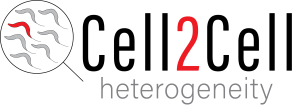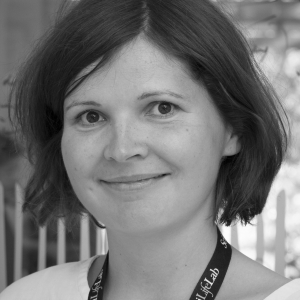Research Interests
Our lab is interested in understanding how the genome is spatially organized in the cell nucleus, and how this structural organization contributes to define the astounding complexity of living organisms.
Our long-term goal is to illuminate the design principles that shape the three-dimensional (3D) organization of the genome and to understand how aberrant re-wiring of the 3D genome can contribute to disease onset.
Towards this goal, we continuously develop and integrate next-generation sequencing, single-molecule microscopy, and advanced computational methods. We mainly work with human and mouse cell lines, our assays can be applied to a broad variety of samples, including tissues of different origin.
One example of such methods is iFISH (PMID: 30967549). iFISH allows cost-effective and scalable production of oligonucleotide-based DNA and RNA FISH probes, against any organism of interest for which there exists a reference genome.
Another example of a method recently developed in our lab is GPSeq (unpublished), which probes the radial arrangement of chromatin in the cell nucleus. Magda’s group has shown that GPSeq accurately recapitulates radiality measurements by DNA FISH, and that integration of GPSeq with Hi-C information allows making 3D genome structure predictions at the level of single-cells, with an accuracy that has not been achieved so far.
Keywords & Methods
3D genome; nuclear architecture; gene expression regulation; fluorescence in situ hybridization; high-throughput sequencing; single-cell methods
Scientific CV
| Year | Function | Institution |
|---|---|---|
| since 2015 | Assistant Professor | Science for Life Laboratory,
Karolinska Institutet, Stockholm, Sweden |
| 2013 – 2014 | Postdoctoral Associate | Hubrecht Institute,
Utrecht, The Netherlands Advisor: Prof. A. van Oudenaarden |
| 2011 – 2013 | HFSP Postdoctoral Fellow | Massachusetts Institute of Technology, Boston MA, USA
Advisor: Prof. A. van Oudenaarden |
| 2010-2011 | Short postdoc | Goethe University,
Frankfurt, Germany Advisor: Prof. I. Dikic |
| 2005-2010 | PhD | Goethe University,
Frankfurt, Germany Advisor: Prof. I. Dikic |
| 2001-2005 | Master’s of Science
(Biotechnology) |
Jagiellonian University,
Krakow, Poland |
This project has received funding from the European Union’s Horizon 2020 Research and Innovation programme under the Marie Skłodowska-Curie grant number 860675.


